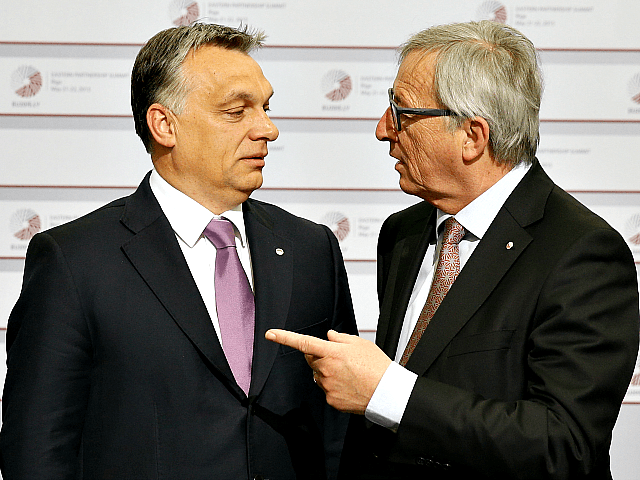The Hungarian government has vowed to fight efforts by the central organs of the European Union (EU) to withdraw “ever more powers” from the bloc’s elected national governments, centralising them in Brussels “without authorisation from the citizens”.
Csaba Dömötör, Minister of State at the Cabinet Office of Prime Minister Viktor Orbán, told the Magyar Idők newspaper that it was becoming “increasingly evident” that Brussels wishes to assert more power over the tax policies of EU members. He also warned the bloc would try to prevent national governments from intervening in the energy market to ensure low domestic energy prices.
Hungary’s populist government was able to deliver the cheapest gas and electricity in the EU after introducing price-cutting measures promised in its election manifesto – but this irritated lobbyists in Brussels, causing the European Commission to push for more EU involvement in member states’ energy policies.
Domestic taxation and energy prices are just two of the five key battlegrounds where Prime Minister Orbán believes the EU will mount “major attacks” on national sovereignty in 2017. The other three relate to national controls over immigration, foreign-funded activist groups and non-governmental organisations, and government job-creation schemes.
“If we want Hungary to continue being a winning country in 2017, we Hungarians must provide a clear response to these five questions”, he said. “In fact behind all five questions there is the issue of national self-determination. So we have returned to the starting point: nations against globalists, sovereigntists against federalists.”
Orbán claims that “the lords of globalist politics” have not learned from their defeats in the Brexit referendum, the U.S. presidential elections, and elsewhere.
“They have decided they will not surrender their positions, but will crush any will of the people that opposes the open society and liberal governance,” he said. “They have declared that if elections in a certain country are not won by their ideological partners, by the liberals, then in that country democracy no longer exists. They have declared that the people constitute a danger to democracy.”
The so-called “rule of law” probe which Brussels launched against Poland after the Law and Justice (PiS) government introduced measures to “undo corrupt, communist legacies” provides an example of this.
However, the Hungarian government has pledged to oppose any attempt by the European bureaucracy to hit its neighbour with punitive sanctions or rescind its EU voting rights, and Poland has written to the Commission saying it will not accede to its demands and considers the matter closed.
The EU will make a decision on whether or not it will attempt to punish Poland despite failing to secure Hungary’s support shortly.

COMMENTS
Please let us know if you're having issues with commenting.